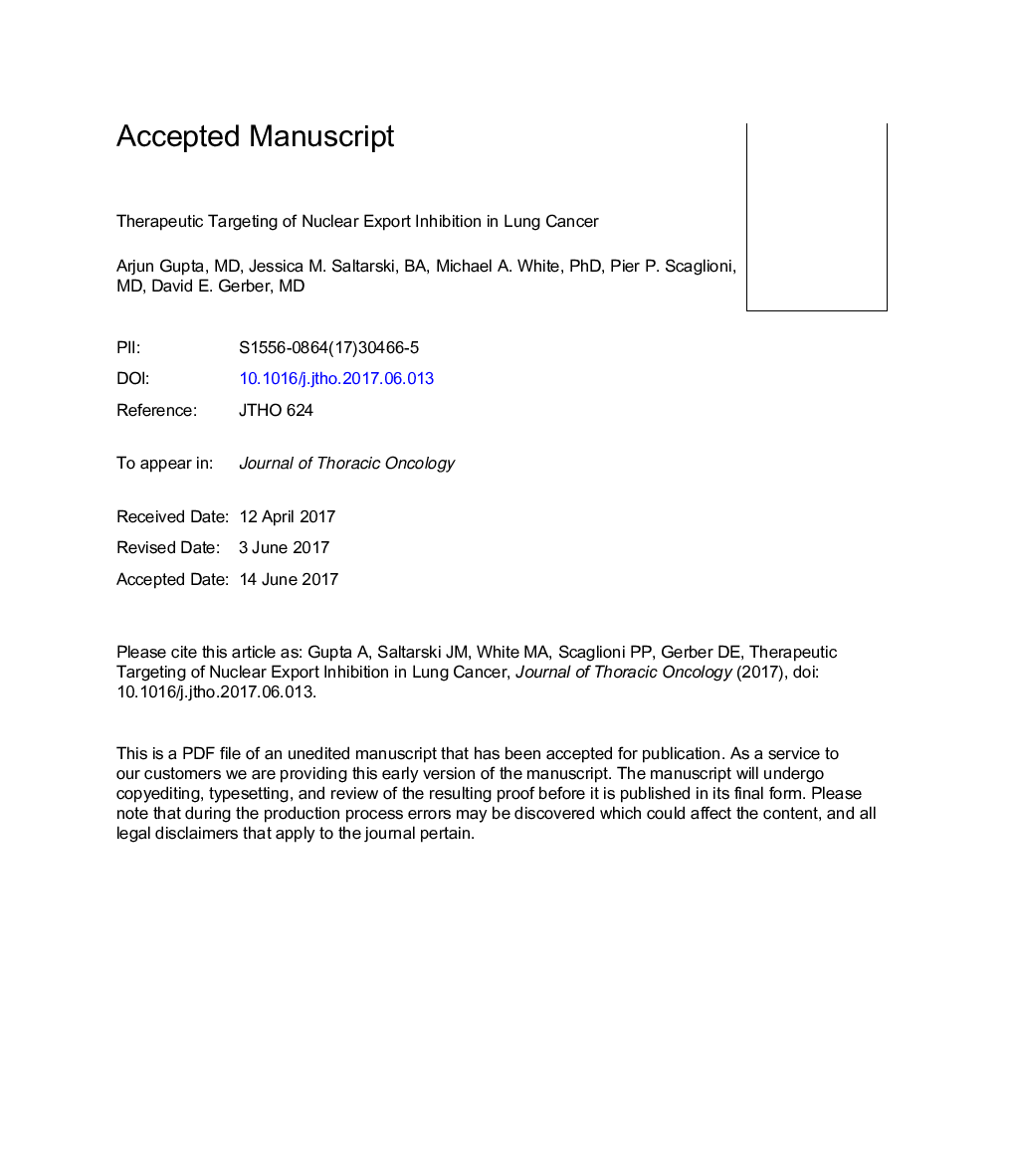| کد مقاله | کد نشریه | سال انتشار | مقاله انگلیسی | نسخه تمام متن |
|---|---|---|---|---|
| 5701466 | 1410596 | 2017 | 13 صفحه PDF | دانلود رایگان |
عنوان انگلیسی مقاله ISI
Therapeutic Targeting of Nuclear Export Inhibition in Lung Cancer
ترجمه فارسی عنوان
هدف درمان در مهار بازدارندگی هسته ای در سرطان ریه
دانلود مقاله + سفارش ترجمه
دانلود مقاله ISI انگلیسی
رایگان برای ایرانیان
کلمات کلیدی
موضوعات مرتبط
علوم پزشکی و سلامت
پزشکی و دندانپزشکی
تومور شناسی
چکیده انگلیسی
Intracellular compartmentalization and trafficking of molecules plays a critical role in complex and essential cellular processes. In lung cancer and other malignancies, aberrant nucleocytoplasmic transport of tumor suppressor proteins and cell cycle regulators results in tumorigenesis and inactivation of apoptosis. Pharmacologic agents targeting this process, termed selective inhibitors of nuclear export (SINE), have demonstrated antitumor efficacy in preclinical models and human clinical trials. Exportin-1 (XPO1), which serves as the sole exporter of several tumor suppressor proteins and cell cycle regulators, including retinoblastoma, adenomatous polyposis coli, p53, p73, p21, p27, forkhead box O, signal transducer and activator of transcription 3, inhibitor of κB, topoisomerase II, and protease activated receptor 4-is the principal focus of development of SINE. The most extensively studied of the SINE to date, the exportin-1 inhibitor selinexor (KPT-330 [Karyopharm Therapeutics, Inc., Newton Centre, MA]), has demonstrated single-agent anticancer activity and synergistic effects in combination regimens against multiple cancer types, with principal toxicities of low-grade cytopenias and gastrointestinal effects. SINE may have particular relevance in KRAS-driven tumors, for which this treatment strategy demonstrates significant synthetic lethality. A multicenter phase 1/2 clinical trial of selinexor in previously treated advanced KRAS-mutant NSCLC is under way.
ناشر
Database: Elsevier - ScienceDirect (ساینس دایرکت)
Journal: Journal of Thoracic Oncology - Volume 12, Issue 9, September 2017, Pages 1446-1450
Journal: Journal of Thoracic Oncology - Volume 12, Issue 9, September 2017, Pages 1446-1450
نویسندگان
Arjun MD, Jessica M. BA, Michael A. PhD, Pier P. MD, David E. MD,
